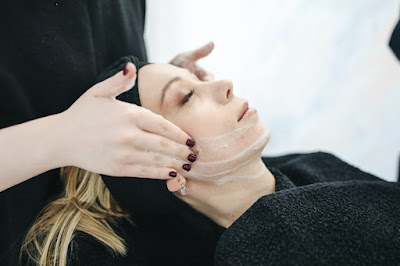The skin is the body’s largest organ, serving as a protective barrier against external elements, regulating temperature, and aiding in the sensation of touch. Caring for your skin is not just about maintaining a youthful appearance; it’s about prioritizing your overall health. Proper skincare practices can prevent various dermatological issues, enhance your complexion, and promote a radiant, healthy glow. This comprehensive guide outlines ten essential ways to care for your skin, covering practices, tips, and expert advice for achieving and maintaining healthy skin.
Understanding Your Skin
Before delving into specific skincare practices, it’s crucial to understand the skin’s structure and functions. The skin consists of three primary layers: the epidermis, dermis, and hypodermis. The epidermis acts as a protective shield, the dermis contains connective tissues and vital structures like sweat glands and hair follicles, while the hypodermis stores fat and insulates the body. Each layer has distinct functions and requires specific care to maintain overall skin health.
10 Ways to Caring for skin:
Daily Cleansing Routine:
A clean face is essential for good skin. Regardless of whether your skin type is oily, dry, mixed, or sensitive, use a mild cleanser. By cleaning your face twice a day, you may avoid clogged pores and acne by getting rid of debris, extra oil, and pollutants. Steer clear of abrasive soaps that could deplete the skin’s natural oils.
Hydration:
It’s important to keep your skin hydrated. Every day, make sure you consume enough water to keep your skin hydrated from the inside out. Moreover, seal in moisture using serums and moisturizers, particularly after washing, to avoid dryness and preserve a dewy face.
Sun Protection:
Preventing sunburn, skin cancer, and accelerated ageing of the skin are all dependent on protecting your skin from the sun’s damaging UV rays. Even on overcast days, use sunscreen with at least SPF 30, and dress and accessories in protective gear.
Balanced Diet:
Skin health is significantly influenced by a healthy diet. Eat plenty of fruits, vegetables, lean meats, and healthy fats that are high in omega-3 fatty acids, antioxidants, and vitamins (particularly A, C, and E). These vitamins and minerals support healthy skin and help with skin renewal and repair.
Regular Exfoliation:
Exfoliation helps remove dead skin cells, unclogs pores, and promotes cell turnover. However, it’s crucial to exfoliate gently and not too frequently, as over-exfoliation can damage the skin barrier and lead to irritation.
Proper Sleep:
Restorative sleep is necessary for the renewal and repair of skin. Try to get between seven and nine hours of sleep every night. Stress hormones are elevated when we sleep less, which can result in dullness and acne.
Stress Management:
Prolonged stress has the potential to harm the skin, resulting in a number of conditions like psoriasis, eczema, and acne. To maintain good skin, engage in stress-relieving activities such as yoga, meditation, or deep breathing.
Smoking and excessive alcohol consumption can harm the skin, causing premature aging, wrinkles, and dehydration. Quitting smoking and moderating alcohol intake can significantly improve skin health.
Regular Exercise:
Increased blood flow from physical exercise nourishes skin cells and removes waste. Exercise also aids in the regulation of hormone balance, which has a favorable effect on skin health.
Consultation with a Dermatologist:
Regular visits to a dermatologist are vital for maintaining skin health. Professionals can provide personalized advice, diagnose skin conditions, and recommend suitable treatments or products tailored to your skin type and concerns.
FAQs:
Q1: Is it necessary to moisturize oily skin?
Yes, even oily skin needs hydration. Look for oil-free, non-comedogenic moisturizers to keep the skin hydrated without clogging pores.
Q2: How often should I exfoliate my skin?
Exfoliate 1-3 times a week, depending on your skin type. Be gentle to avoid skin irritation.
Q3: Can diet affect my skin?
Absolutely. A balanced diet rich in nutrients, vitamins, and antioxidants contributes to healthy skin.
Q4: How important is sunscreen, even on cloudy days?
UV rays can penetrate clouds, making sunscreen essential every day to protect your skin from potential damage.
Q5: Will stress impact my skin health?
Yes, stress can trigger various skin issues, so managing stress is crucial for healthy skin.
Conclusion:
In conclusion, caring for your skin involves consistent, mindful practices tailored to your skin type and lifestyle. These ten fundamental ways, along with understanding your skin’s needs, can significantly contribute to maintaining healthy, glowing skin throughout your life. Embrace these habits, and enjoy the benefits of vibrant, radiant skin for years to come.

